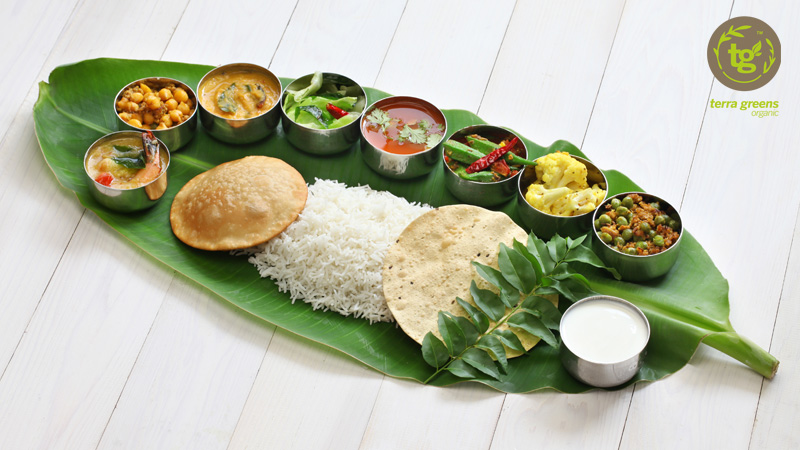Indian cuisine changes considerably from region to region depending on the accessibility of ingredients and also seasonality. It is one of the world’s oldest systems of food that recognizes not only the culinary aspects but also imbibes in its fold the traditional Ayurvedic system. Indian food system is wise in its approach to meet the taste as well as the health goals of individuals.
We bring to you India’s foremost thinkers and researchers who have studied Indian food system in depth and have written books that have a contemporary flavour to them, appealing to the new age minds. Take your pick.
Don’t Lose Your Mind, Lose Your Weight – By Rujuta Diwekar
Rujuta is a celebrity fitness expert to whom many Bollywood actors and actresses owe their great shape and health to, the list includes superstars like Kareena Kapoor, Saif Ali Khan, Anupam Kher and many others. As a leading nutritionist, Diwekar is against the idea of crash diets prescribed by dieticians that looms over carb-starvation, unnecessary food cravings and things which ultimately lead to a food deprived body.
Throughout the book, she extols the invaluable wisdom behind Indian system of food and how a balanced Indian meal can go a long way in maintaining one’s health at its peak condition.
Cultural History of India – By Om Prakash
Apart from different cultural aspects, the book discusses the dietary system of Indians from pre-historic times to C. 1200 A.D. The reason for the inclusion of food and drinks in the book on Indian culture is that, ancient Indians believed that food not only kept an individual healthy but was also responsible for his mental make-up. The author stresses that it is of utmost importance that the present generation imbibes those elements of Indian culture which have kept India vital and going through its long and continuous history.
The Penguin Food Guide to India – By Charmaine O’Brien
O’Brien, an Australian writer and culinary historian, first visited India in 1995. She has visited every state in India since then. The book is her journey of discovery born out of the fundamental truth that India does not have one single homogenous cuisine. The greatness of its food lies in its enormous variety and subtlety.
Her goal in her own words “was to create a historical and cultural guide to India’s regional cuisine and to recommend places where domestic tourist or international visitors could find distinct regional food.” She helps readers with the tools to experience genuine, local flavours.
Indian Food: A Historical Companion – By K.T. Achaya
The book outlines the enormous variety of cuisines, food materials and dishes that together are referred to as ‘Indian food’. The book draws upon material from a variety of sources including literature, archaeology, epigraphic records, anthropology, philology, and botanical and genetic studies. It gives interesting facts pertaining to the origins and evolution of Indian food.
A chapter is entirely dedicated to regional cuisines. The theories and classification of food as codified by ancient Indian doctors like Charaka, Sushrutha, and Bhagvata, find detailed references in the book. The book takes a look at the history of meat eating and the consumption of alcoholic beverages, and the gradual shift towards vegetarianism due to Hinduism Jainism, an account of the sophisticated cooking accoutrements like baking oven, liquor distillation unit, the etymology of food-words and much more. All in all, it’s one of the must-read books for any Indian wanting to know the rich cultural Indian food heritage of India.
India’s Organic Farming Revolution – By Sapna E. Thottathil
There are simply too many questions about organic food. Is it good for all of us as is proclaimed by some or is GMO the solution to hunger? Sapna picks Kerala as the case study: a State where the so-called “Green Revolution” program with hybrid seeds, synthetic fertilizers, and rising pesticide use failed to reduce hunger. It instead caused a vicious cycle of economic, medical, and environmental problems.
Farmers burdened with huge debts from buying the new seeds and chemicals were committing suicide. Farm labourers suffered from pesticide poisoning and there was a rise in the rate of birth defects. A fall in biodiversity worried environmental activists. Finally, farmers, environmentalists, and policymakers drew on Kerala’s history and its commitment to grassroots democracy and enacted a policy that requires Kerala growers to farm organically by 2020. The book draws some highly valuable extrapolations for our global food systems as well with Indian food and agriculture system as the basis.
One at a time, take your pick and dwell into what could probably become mainstream reading for students and academicians in the forthcoming days.

